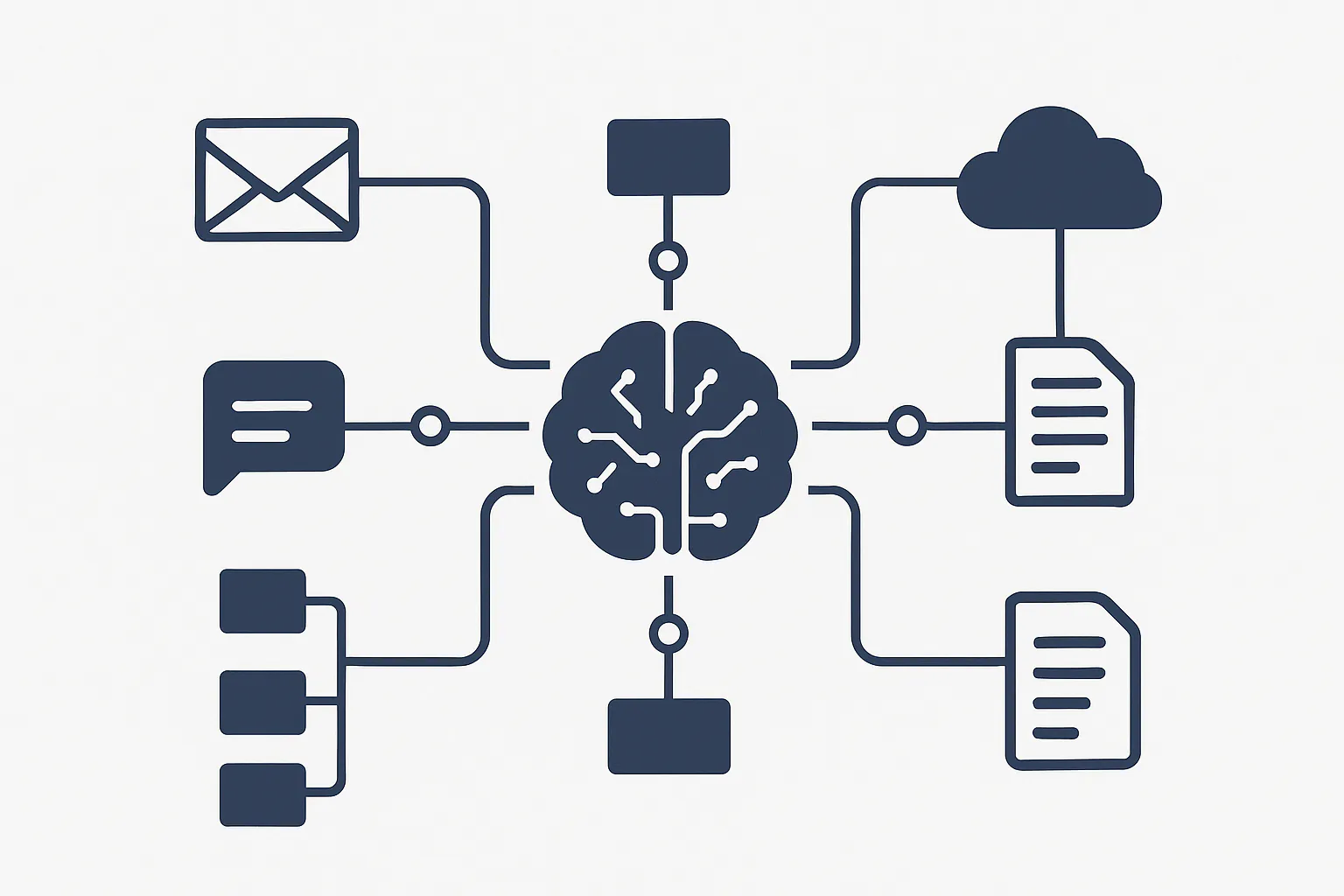How AI is Transforming the Retail Industry: Innovations, Benefits, and Challenges
Key Takeaways

Introduction
Artificial Intelligence (AI) is no longer a futuristic concept; it’s a present-day reality that is revolutionizing various industries, including retail. With its ability to analyze vast amounts of data, predict consumer behavior, and automate processes, AI is becoming indispensable in the retail sector. This article explores the innovations AI brings to retail, its benefits, the challenges it poses, and what the future holds for this dynamic integration.
Overview of AI in Retail
What is AI and Its Relevance to Retail?
AI encompasses technologies that enable machines to perform tasks typically requiring human intelligence. In retail, AI's relevance is profound, encompassing applications such as personalized shopping experiences, inventory management, and predictive analytics.
Historical Perspective: Evolution of AI in Retail
AI's journey in retail began with simple automation and data analytics tools. Over the years, it has evolved to include sophisticated algorithms that power chatbots, recommendation systems, and dynamic pricing strategies. The evolution from basic data processing to advanced machine learning models marks significant milestones in retail's digital transformation.
Key Innovations in AI for Retail

AI-Powered Inventory Management
AI-driven inventory management systems predict demand with remarkable accuracy, reducing overstock and stockouts. Machine learning algorithms analyze historical sales data, seasonal trends, and external factors to optimize inventory levels.
Personalized Customer Experiences
Personalization is at the heart of modern retail strategies. AI algorithms analyze customer data, including browsing history, purchase behavior, and preferences, to deliver personalized recommendations. This enhances customer satisfaction and boosts sales.

AI-Driven Pricing Strategies
Dynamic pricing models powered by AI adjust prices in real-time based on demand, competition, and other factors. This not only maximizes profits but also ensures competitive pricing.
Supply Chain Optimization
AI optimizes supply chain operations by predicting demand, managing logistics, and reducing inefficiencies. Predictive analytics help retailers anticipate demand fluctuations and adjust their supply chain accordingly.
Predictive Analytics in Retail
Predictive analytics use AI to forecast future trends based on historical data. Retailers use these insights to plan marketing campaigns, manage inventory, and improve customer engagement strategies.
Benefits of AI in Retail
Enhanced Customer Service and Satisfaction
AI-powered chatbots and virtual assistants provide 24/7 customer support, answering queries, assisting with purchases, and resolving issues promptly. This leads to improved customer satisfaction and loyalty.
Improved Operational Efficiency
Automation of routine tasks such as inventory management, customer service, and data analysis reduces operational costs and improves efficiency. Employees can focus on more strategic tasks, enhancing overall productivity.
Cost Reduction and Revenue Growth
AI helps in reducing costs through optimized inventory management and dynamic pricing while increasing revenue through personalized marketing and enhanced customer experiences.
Better Decision-Making with Data-Driven Insights
AI provides retailers with deep insights into customer behavior, market trends, and operational performance. These data-driven insights enable informed decision-making, helping retailers stay competitive.
Challenges and Considerations
Implementation Challenges
Implementing AI technologies can be complex and costly. Retailers need to invest in the right infrastructure and expertise to harness AI's full potential.
Data Privacy and Security Concerns
With the increased use of customer data, privacy and security become paramount. Retailers must ensure they comply with data protection regulations and implement robust security measures to protect customer information.
Need for Skilled Workforce and Training
AI implementation requires a skilled workforce proficient in data science, machine learning, and AI technologies. Retailers must invest in training programs to upskill their employees.
Integration with Existing Systems
Integrating AI solutions with legacy systems can be challenging. Retailers need to ensure seamless integration to maximize AI's benefits without disrupting existing operations.
Case Studies and Real-World Examples
Success Stories of Retail Giants Using AI
Retail giants like Amazon and Walmart have successfully integrated AI into their operations. Amazon's recommendation system, powered by AI, significantly boosts sales by suggesting relevant products to customers. Walmart uses AI for efficient inventory management and supply chain optimization.
Small and Medium-Sized Retailers Benefiting from AI
Smaller retailers are also leveraging AI to compete with larger counterparts. For instance, Stitch Fix uses AI to provide personalized styling recommendations, enhancing customer satisfaction and retention.
Specific AI Applications and Their Outcomes
Retailers are using AI for various applications, from virtual try-ons to AI-powered kiosks. Sephora's virtual artist tool allows customers to try on makeup virtually, increasing engagement and sales.
Future Trends of AI in Retail
Emerging AI Technologies in Retail
Emerging technologies such as computer vision, natural language processing, and augmented reality are set to further transform retail. These technologies will enhance customer experiences and streamline operations.
Predictions for the Next 5-10 Years
In the next decade, AI will become more integrated into all aspects of retail. Predictive analytics will become more accurate, personalization will be more precise, and automation will cover more areas of retail operations.
Potential Impact on the Retail Landscape
AI will drive significant changes in the retail landscape, from reshaping customer interactions to revolutionizing supply chain management. Retailers who embrace AI will have a competitive edge, while those who resist may struggle to keep up.
Conclusion
AI is undeniably transforming the retail industry, offering numerous benefits such as enhanced customer service, improved operational efficiency, and better decision-making. However, challenges such as implementation complexities, data privacy concerns, and the need for skilled workforce must be addressed. As AI technology continues to evolve, its impact on retail will only grow, making it imperative for retailers to explore and adopt AI solutions to stay competitive in the dynamic market landscape.
Ready to integrate AI into your retail operations and stay ahead of the competition? Connect with Yocum Technology Group today and discover how our innovative AI solutions can transform your retail business. Contact us now.




